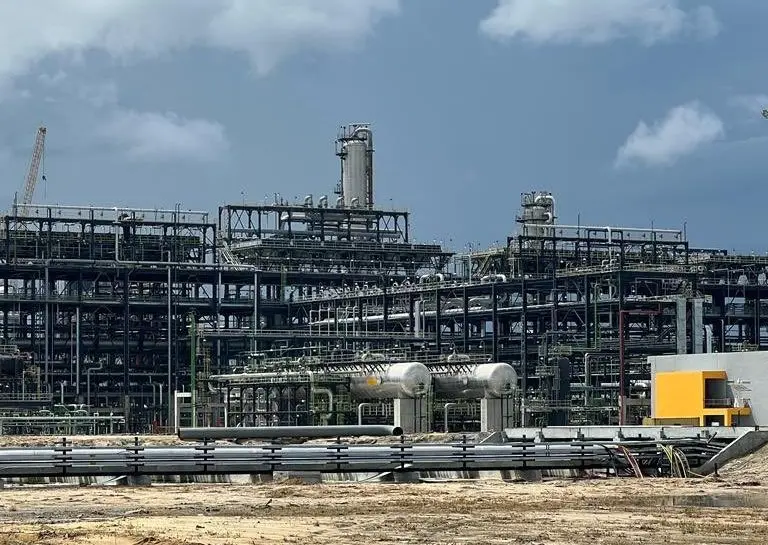
In a major step towards boosting Nigeria’s domestic refining capacity and attaining energy security (self-sufficiency), Dangote Petroleum Refinery and Petrochemicals plant has purchased 1 million barrels of Agbami crude grade from Shell International Trading and Shipping Company Limited (STASCO), one of the largest trading companies in Nigeria as well as globally, trading over 8 million barrels of crude oil per day.
The STASCO cargo contained 1 million barrels from Agbami and sailed to Dangote Refinery’s Single Point Mooring (SPM) where it was discharged into the refinery’s crude oil tanks.
The maiden 1 million barrels, which represent the first phase of the 6 million barrels of crude oil to be supplied to Dangote Petroleum Refinery by a range of suppliers, should sustain the initial 350,000 barrels per day to be processed by the facility. The next four cargoes will be supplied by the NNPC in two to three weeks and the final of the six cargoes will be supplied by ExxonMobil.
This supply will facilitate the initial run of the refinery as well as kick-start the production of diesel, aviation fuel, and LPG before subsequently progressing to the production of Premium Motor Spirit (PMS).
This latest development will play a pivotal role in alleviating the fuel supply challenges faced by Nigeria as well as the West African countries.
Designed for 100% Nigerian crude with the flexibility to process other crudes, the 650,000 barrels per day Dangote Petroleum Refinery can process most African crude grades as well as Middle Eastern Arab Light and even US Light tight oil as well as crude from other countries.
Dangote Petroleum Refinery can meet 100% of Nigeria’s requirement of all refined products, gasoline, diesel, kerosene, and aviation jet, and also has a surplus of each of these products for export.
The refinery was built to take crude through its two SPMs located 25 kilometres from the shore and to discharge petroleum products through three separate SPMs. In addition, the refinery has the capacity to load 2,900 trucks a day at its truck-loading gantries.
Dangote Refinery has a self-sufficient marine facility with the ability to handle the largest vessel globally available. In addition, all products from the refinery will conform to Euro V specifications.
The refinery is designed to comply with US EPA, European emission norms, and Department of Petroleum Resources (DPR) emission/effluent norms as well as African Refiners and Distribution Association (ARDA) standards.
President of Dangote Group, Mr. Aliko Dangote stated: “We are delighted to have reached this significant milestone. This is an important achievement for our country as it demonstrates our ability to develop and deliver large capital projects. Our focus over the coming months is to ramp up the refinery to its full capacity. I look forward to the next significant milestone when we deliver the first batch of products to the Nigerian market.”
Country Chairman of Shell Companies in Nigeria, Mr. Osagie Okunbor stated: “We welcome the startup of a refinery that is designed to produce gasoline, diesel, and low-sulphur fuels for Nigeria and across West Africa and are happy to be enabling it.”
The Dangote Group is the most diversified business conglomerate in West Africa with a hard-earned reputation for excellent business practices and product quality with its operational headquarters in the bustling metropolis of Lagos, Nigeria in West Africa.
Since its inception, the Group has experienced phenomenal growth on account of the quality of its goods and services, its focus on cost leadership and the efficiency of its human capital. Today, Dangote Group is a multi-billion Naira company poised to reach new heights, in every endeavour competing with itself to better the past.
The Group’s core business focus is to provide local, value-added products and services that meet the ‘basic needs’ of the populace. Through the construction and operation of large-scale manufacturing facilities in Nigeria and across Africa, the Group is focused on building local manufacturing capacity to generate employment and provide goods for the people.








